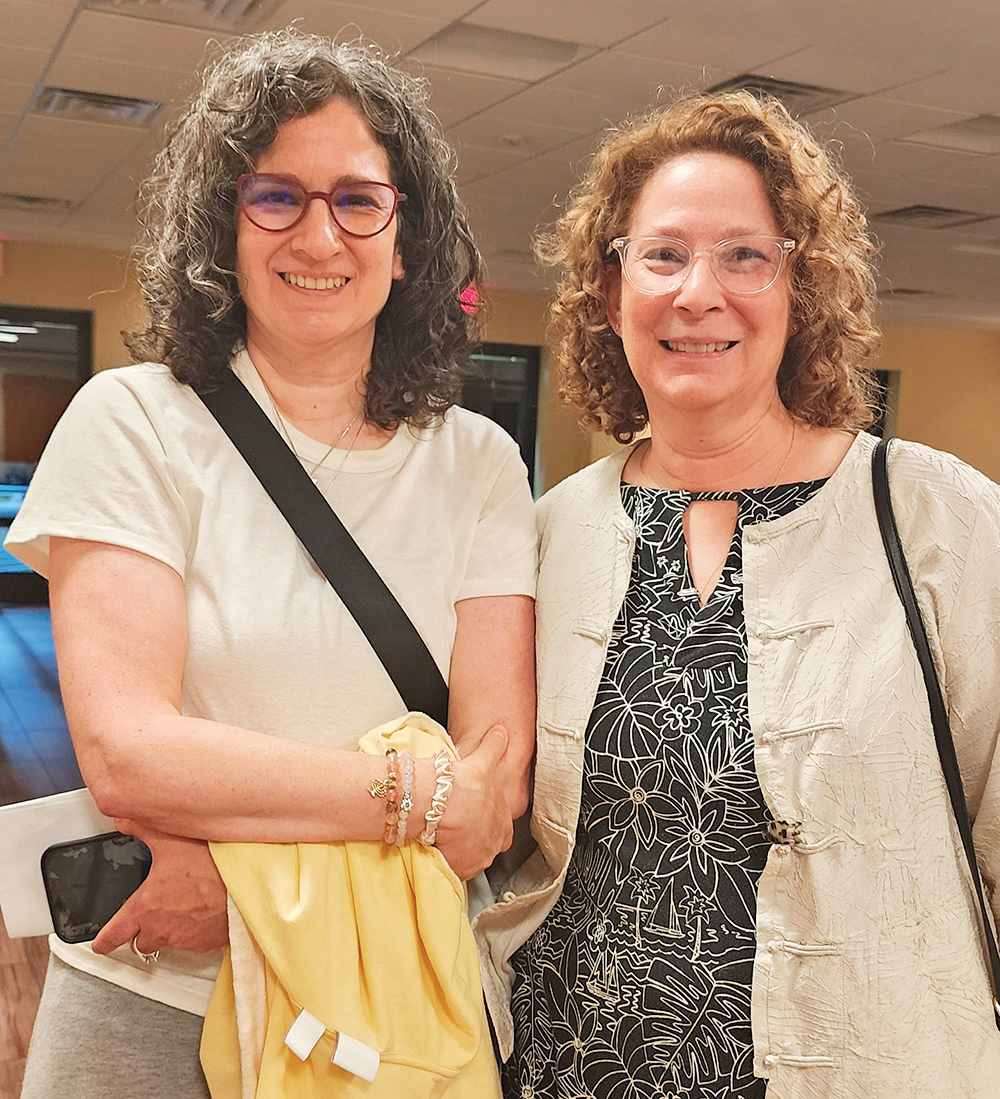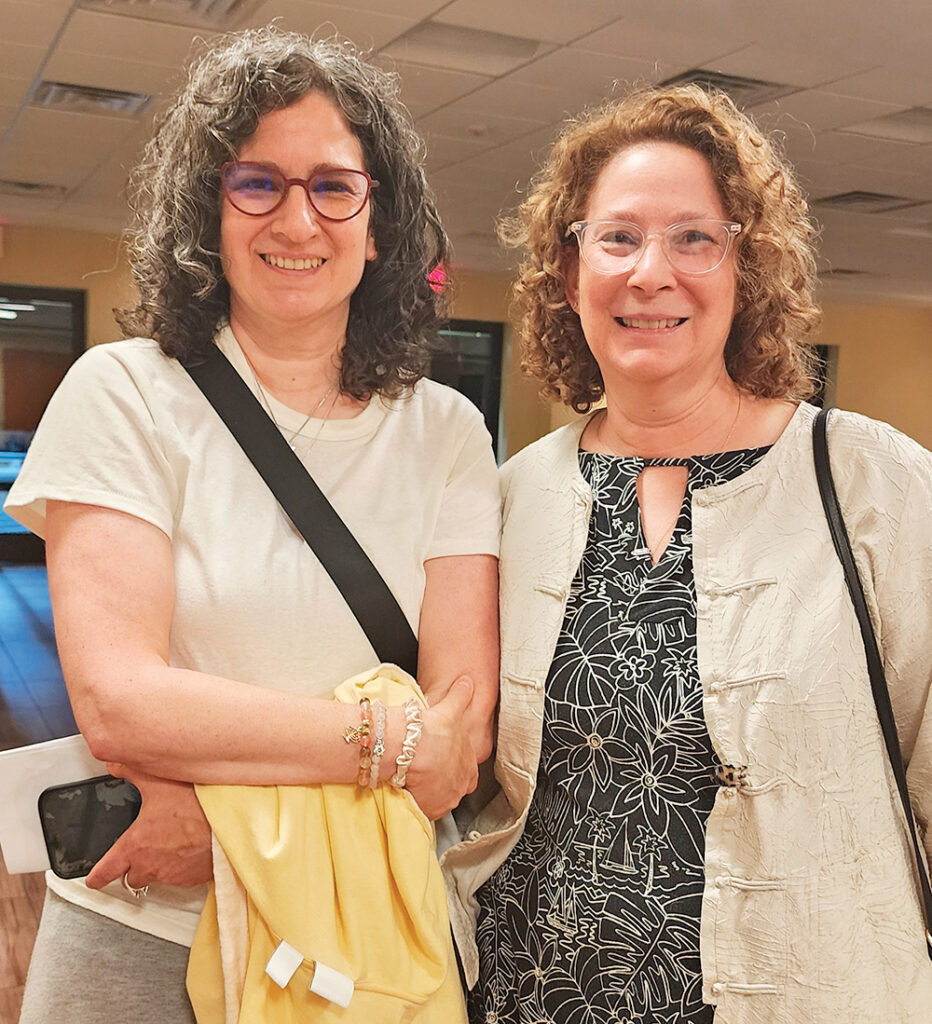
Young Israelis who serve in combat units in dangerous and high pressure situations often are impacted by traumatic events that affect their emotional and mental well-being in many areas of life. The Peace of Mind program affords an intense therapeutic program to heal these wounds.
On June 20, the Highland Park/Edison Peace of Mind group hosted an information session at Congregation Ahavas Achim. “What Happens After the Battle” showed how group post-trauma therapy impacts IDF participants, host families and communities. Approximately 75 people attended the informative session, which included presentations from people involved with the program in various capacities and provided the opportunity for informal discussions and interactions over dessert.
Natalie Aloyets Artel, co-chair, Highland Park/Edison Peace of Mind, opened the presentation with a welcome and a reminder that the group is in the midst of fundraising to bring the community’s sixth unit of soldiers. The post-October 7 situation presents an even greater need to bring units of soldiers to a location for intensive group and individual therapy to help them learn skills to deal with what they have experienced.
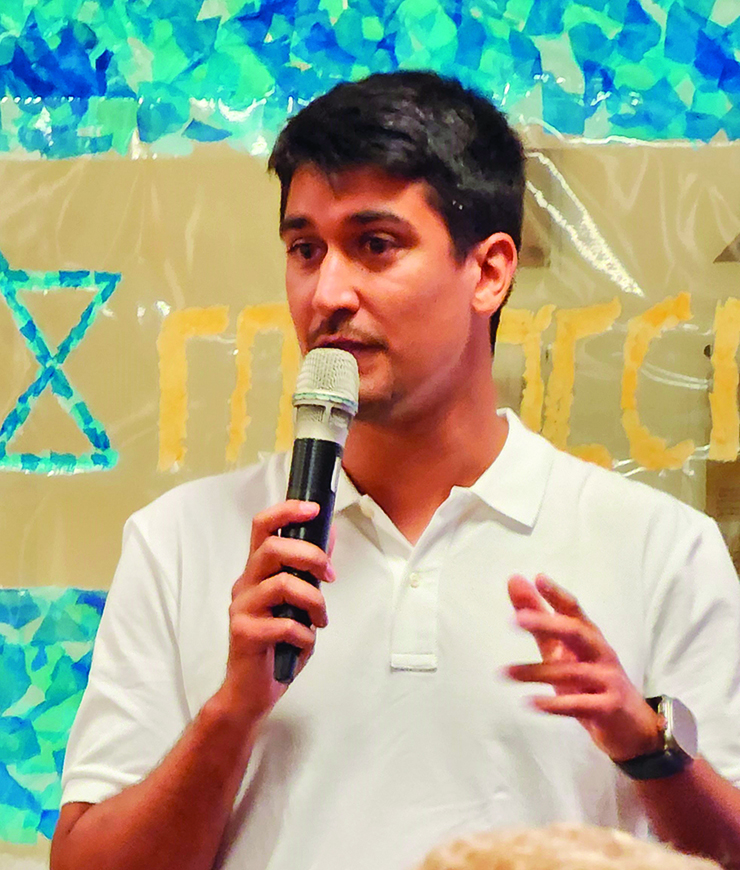
A video of a Peace of Mind group who went to Hollywood, Florida, provided perspective on how the soldiers began to heal the “scars in their hearts and souls” from their army experience. Discharge from the IDF did not necessarily mean that a former soldier was ready to reintegrate into their families and Israeli society. Coming to a community in the United States as a unit provided the group with the time and space to discuss multiple issues and see first-hand how Diaspora Jews support their brethren in Israel. Between the tears and smiles, the group sessions allowed them to intensively cover their experiences and learn the skills needed to move forward. One participant noted that the experience allowed him to be a “better person, a better husband, a better father and a better friend.”
The program clearly changes lives, families and Israeli society—but also positively impacts the host communities. Over 70 communities worldwide have hosted these programs, many, such as Highland Park/Edison, have hosted multiple times.
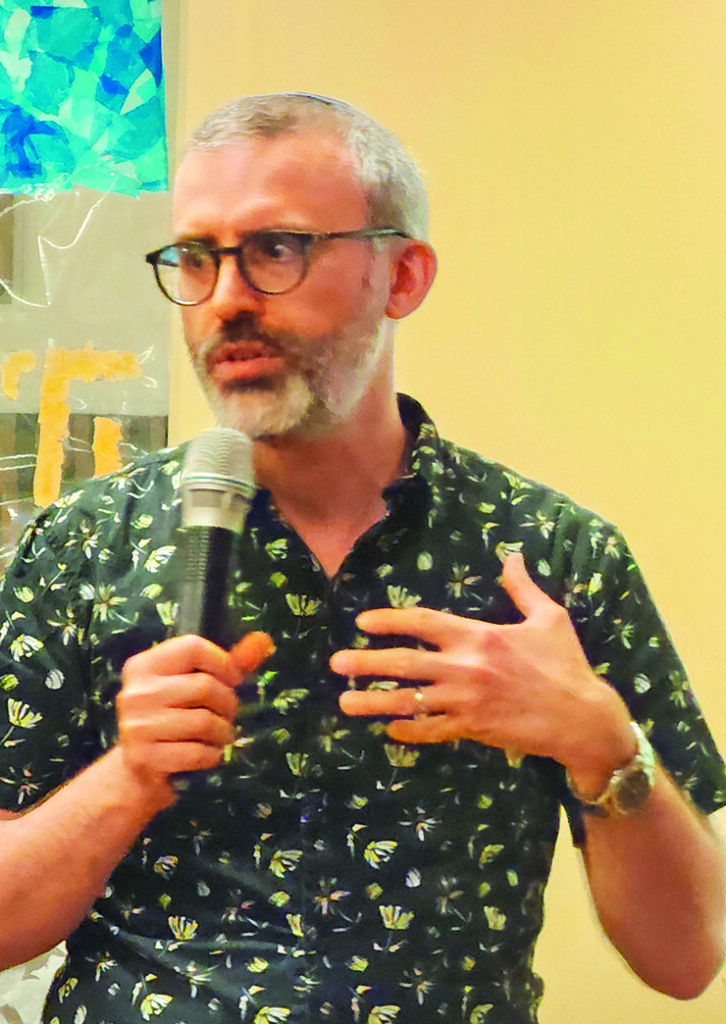
Metiv, the Israel Psycho-Trauma Center (the organization in Israel that runs the sessions) notes that approximately 9% of Israelis suffer from some form of post-traumatic stress disorder (PTSD), which is three times the level of the United States or other Western countries. Founded in 1989, Metiv is a world-renowned innovator in the research and treatment of the wide-ranging effects of trauma, particularly in working to destigmatize the concept of PTSD to allow more people to open themselves to the opportunity of getting help. One of the key points of working with an intact IDF unit is that members who may not feel the need for counseling themselves come along to help their comrades, and only later realize that they were helped as well.
A Fire Island resident (requesting anonymity) who served in the IDF in 2006 and was a host for his community’s Peace of Mind group in 2019 described how meaningful the group’s presence was for his community. The friendships and connections made continue to this day. He noted that soldiers have 100% of their needs taken care of while they are in service, and suddenly when they are discharged they have to take care of everything themselves. The lack of a transition, particularly with unresolved post-traumatic stress issues, can be devastating.
This veteran described how a handyman had come to his house and during conversation they began talking about the program. The handyman noted that he wished there had been a similar program for him. His personal experiences left him unable to function and led to his divorce and estrangement from his family. Members of the elite units who had gone through the programs found that they were able to work together better when they were called up after October 7 and had more resilience to cope. Mofaz Shmueli of Tel Aviv was a member of the Fire Island group and shared that the sessions helped the team members rebuild personally as well as collectively.
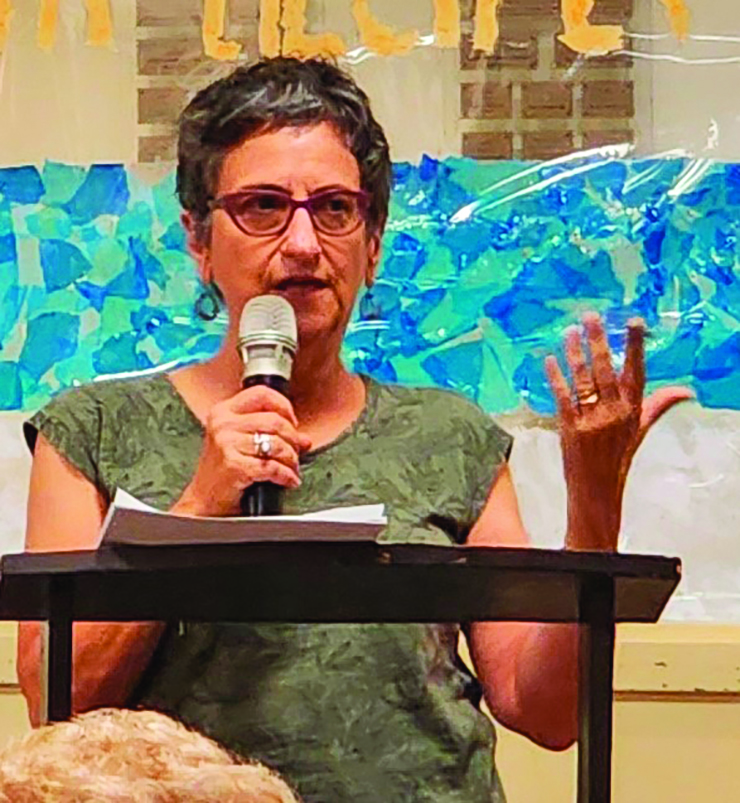
Chaim Landau, head of development and partnerships at Metiv, coordinates the efforts of all host communities, yet was here in the United States for the first time in that capacity. Group members are assumed to have PTSD, whether or not they show symptoms. The major concern is that there is still a stigma for people who seek help for PTSD, so arriving as a unit helps. The soldiers are also gratified (and often surprised) by the tremendous support shown by the Diaspora host communities. The soldiers gain an added appreciation that they are fighting for their homeland, their families, but also the Jewish people.
There are many more units that need counseling, but there is a shortage of therapists trained in military trauma, and hosting the units is expensive. “Every combat unit deserves the opportunity to process what they went through,” said Landau. Fortunately, Metiv now has an official partnership with Israel’s Ministry of Defense and is able to get some funding, but the needs continue to outpace the resources.
Aliza Rozov, co-founder of the Highland Park/Edison Peace of Mind program in 2014, is also a psychologist specializing in trauma, and immediately was interested in getting involved. She feels that, from a host community perspective, one of the best aspects of the program is that it transcends personal politics and religious perspectives. The combat veterans come from all facets of the Israeli Jewish community and feel most comfortable being hosted by families from similar backgrounds. The Peace of Mind programs help the soldiers while the host communities also build relationships. “Bridges are built across the community and within the units,” Rosov said. There are far more families who wish to host soldiers than there are soldiers, but there are many other ways to get involved.
There were 16 Peace of Mind programs scheduled for the fall/winter 2023/2024 that were canceled because the units were recalled to active duty. The need has only increased, as those units must be rescheduled, and even more units have suffered. Follow the group’s Facebook page “Peace of Mind Greater Middlesex County” for news about upcoming events and ways to get involved. Donate at https://www.jgive.com/new/en/usd/donation-targets/97629
Deborah Melman is a staff writer at The Jewish Link.



